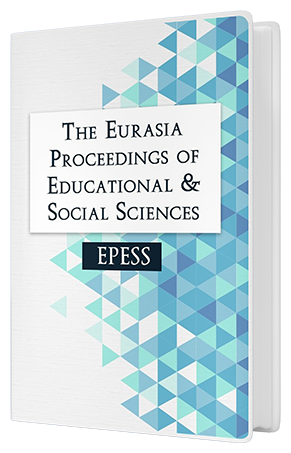The Effect of Using SMART Board to the 7th Grade Students’ Achievement and Recognition Level in Human and Environment Unit
Keywords:
Human and environment, Smart board, Level of recall, Science teachingAbstract
In this study, the effect of SMART Board usage in the 7th grade Human and Environmental unit was investigated on the academic achievement of the students and their recall levels. For research; two middle schools were used in Konya province Hadim District. One of the schools was chosen as the control group and the other was chosen as the experimental group. The Unit Achievement Test was used as data collection tools. For 4 weeks, the students in the control group processed the Human and Environmental unit according to the traditional methods while the students in the experimental group were processed using the same unit smart board activities. The obtained data were analyzed with SPSS 22 statistical package program and t-test was used in the evaluation of the obtained data. In this study comprised of quantitative data on the results of the analysis of the data obtained in academic achievement between the experimental group and the control group, the experimental group in favor of the students it was identified as statistically significant difference. Furthermore, according to the results of the application recall test, the recall rate of the students in the experimental group is higher than the students in the control group. In the data obtained in this study; to the 7th grade students of the junior high school, the use of SMART Board in the teaching of the Human and Environmental unit has achieved academic success and easier to remember learned information.Downloads
Published
Issue
Section
License
Copyright (c) 2018 The Eurasia Proceedings of Educational and Social Sciences

This work is licensed under a Creative Commons Attribution-NonCommercial-ShareAlike 4.0 International License.
The articles may be used for research, teaching, and private study purposes. Any substantial or systematic reproduction, redistribution, reselling, loan, sub-licensing, systematic supply, or distribution in any form to anyone is expressly forbidden. Authors alone are responsible for the contents of their articles. The journal owns the copyright of the articles. The publisher shall not be liable for any loss, actions, claims, proceedings, demand, or costs or damages whatsoever or howsoever caused arising directly or indirectly in connection with or arising out of the use of the research material. All authors are requested to disclose any actual or potential conflict of interest including any financial, personal or other relationships with other people or organizations regarding the submitted work.




